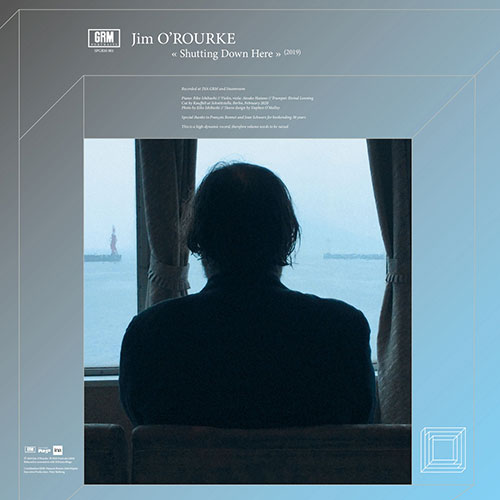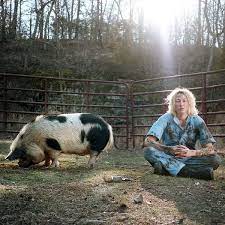“So you want to build the ark again / You say you want to start again / Go ahead go,” Craig Klein sings amid softly plucked guitar and bass notes on “Ark Again,” his voice revealing both the hurt and the resolve of someone who’s walked home to find a loved one walking out. That sense of predetermined isolation, embodied perhaps by the drifting ark, looms large on If You Can, the latest full-length offering from Chicago’s The Race. The ark, with all its biblical insinuations of devastating storms and gradual rebirth, even gets a more prominent place in the record’s cover art than the band itself, floating amid a patchwork — literally — of colored tides. In many ways, the narratives of If You Can could be judged by that cover.
But, if you ask me, it’s not the ark that’s at the record’s foundation. It’s the stitches. The sea on which the record’s ark floats is a sea of multiple cloths that retains its strange, yellow-brick-road glow despite the starry night and dark horizon that surround it. And it’s a sea held together with colorful stitches, little nicks and notches that create patterns all their own. (See the inside for further dimensions.) Apply those sentences right to the audio content of If You Can and you’ll have a pretty good sense of the sonic landscapes The Race is trying to create here.
Though The Race favors the careful pulse/whispers and slowly unfolding songcraft of post-rock acts like Bedhead, the band clearly has pop-rock ambition and the punch to back up the weight of a good melody. Case in point: “Safe and Sound,” where isolated whispers and moans over a strummed electric guitar line lead to a full-band ascent, vocal harmonies and all, where Klein sings, “It’s nothing new, that’s true / Duck, duck, goose and you / Pop like a little balloon.”
This balance between post-rock structure and pop-rock sentimentality seems sustained throughout the record’s nine tracks. But The Race also seems to enjoy fixing its attention on these little, unanticipated stitches and flourishes, whether it’s an unexpected interlude, an added layer of texture and tone from an electric guitar, a semi-buried vocal harmony, or a little electronic buzz or beep provided by Telefon Tel Aviv, who produced If You Can.
The most transfixing part of the record, though, remains the songs themselves. The plodding balladry of “Can Get Home'” and glassy Sonora Pine-isms of “Ark Again,” with subtle layers of sound lurking below their guitar-and-voice strata, are engaging — and almost devastating — in their simplicity. The near-silent interludes juxtaposed with choppy, barbed-wire guitar, clever backing vocals and persistently imaginative drumwork in “Rose” are alarmingly good and do more to sink into your skin than their roughly two-minute running time would suggest. The same could be said for the three-and-a-half minute “Sinking Feeling,” where measured piano and bass lines gradually give way to hip-hop-influenced (and electronically assisted) backbeats.
Some moments on the record are just plain goddamned breathtaking — take the Radiohead-esque “The Hours Eat the Flowers,” where descending measures of piano and double-timed percussion line up with the digital delay of a guitar wash, or the record’s majestic closing tracks, “Seed” and “Out Like a Lamb,” which could get even the highest-strung and tightest-wound among us to take a deep breath and let the approaching night flood over them. (Worth noting is a bridge on “Seed,” which has some of the softest and most sweet vocal harmonies I’ve heard on a record this year.)
The Race will no doubt cause some headaches for reviewers stumped on where the group falls in the indie-rock hierarchy. Is this a pop rock group with Radiohead visions? A post-rock descendant that knows when to abandon the calculated rhythms and repetitions of a guitar line for the impact of a masterfully recorded pop hook or a memorable refrain? Are these indie avant-gardists trying to sneak their careful melodies onto the radio and the charts? There’s probably evidence to nail them to the spot on all three charges. But, on If You Can, the band seems more content to ring sincerity from all three approaches and then some, to craft songs that are beautiful for all the elusive reasons you can’t quite seem to define and to thrill at the seams and stitches that hold together their tracks, rather than the obvious sentiments on which too many of their peers rely. It’s a sea you wouldn’t think a listener could navigate on an ark built for one. But it’s one definitely, definitely, definitely worth exploring, if you can. – Delusions of Adequacy, Aug. 31, 2004




